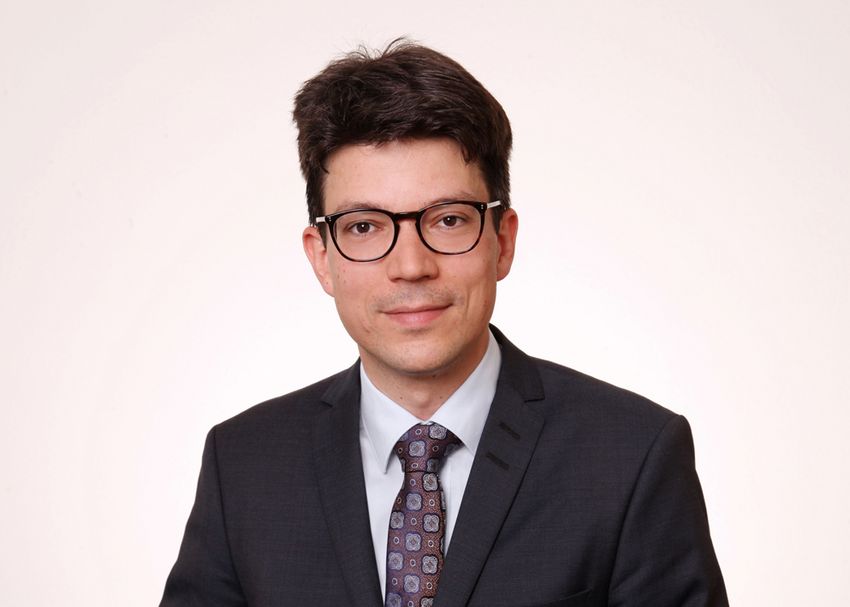Johannes Henn has been running a research group for theoretical and mathematical physics at Mainz University since 2015. He will initially be taking up his post as Director at the MPI for Physics on a part-time basis before working full-time at the Institute as of October 2018.
Born in Munich, he started his scientific career by studying physics at the University of Augsburg, the Université de Savoie and the Ecole Normale Supérieure de Lyon. It was at the French universities that Henn discovered his interest in elementary particle physics. "I was lucky that most of my lecturers were specialists in that field," says Henn. "It's a fascinating topic and I've been captivated by it ever since."
After earning a doctoral degree at the Laboratoire d'Annecy-Le-Vieux de Physique Théorique, he spent three years doing postdoctoral research at Humboldt University in Berlin. From there his career took him to the Institute for Advanced Study (IAS) in Princeton – one of the world's top research centres for particle physics.
Research at the interface between theory and experiment
Henn's research field is elementary particle physics, exploring the fundamental building blocks of matter and the laws of nature according to which these interact with each other. Theoretical physicists develop a mathematical description of elementary particle physics which they use for predicting the outcomes of experiments when testing theories. The so-called standard model of particle physics is currently being tested on the CERN particle accelerator in Geneva.
The particle collisions at CERN are fascinating from a theoretical perspective, too. They are described mathematically by so-called scattering amplitudes in quantum field theory. Scattering amplitudes can be visualized by means of so-called Feynman diagrams, which provide a pictorial representation of complex mathematical expressions. Solving them is a challenging process.
Despite laborious calculations, the result often turns out to be unexpectedly simple. "This is the kind of thing that really motivates theoretical physicists. They are keen to find out the reason why. It's often an indication that we could understand something better." In 2009, for example, Henn and his colleagues discovered that there was a hidden symmetry underlying scattering amplitudes which explains the structure of the answers and much simplifies further calculations.
"Investigating scattering amplitudes is one of the most innovative research fields in particle physics worldwide – it's constantly yielding surprising new insights," says Henn.
It is a field that is very much at the interface between various areas of research such as the phenomenology of elementary particles, string theory and mathematics. "This creates a remarkable dynamic and synergies since researchers from different specialist backgrounds all contribute fresh ideas."
New methods for particle physics
Henn himself did his doctorate on a subject that involved examining the fundamental properties of quantum field theory, for example. Building on this very formal approach, he developed a new technique for calculating Feynman integrals at Princeton in 2013: this has since been applied in numerous ways in the phenomenology of elementary particles.
Henn has received a number of awards for his research. In 2015 he was appointed a W3 professor at the University of Mainz, where he was awarded a GFK fellowship. In 2017 he was the recipient of an ERC Consolidator Grant to fund his research – one of the EU's highest funding grants with a total of two million euros.
He sees the Max Planck Institute for Physics as offering optimum framework conditions for his work. "Dialogue with international colleagues is crucial for theorists, and so is an atmosphere that promotes reflection and fresh ideas," says Henn. "These aspects are well established in the research philosophy of the Max Planck Society. It fosters a culture where the focus is on the scientists themselves, providing them with support so as to enable them to concentrate fully on their research."
